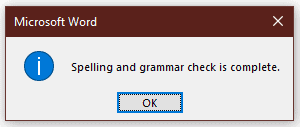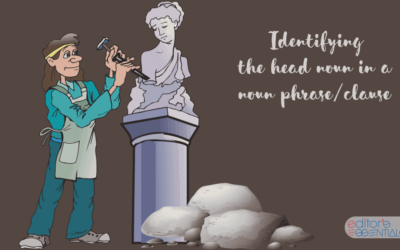Hello, how are you doing in this Covid era?
I have been conducting a series of live sessions titled “Effective Use of MS Word for Editors,” for the Indian Copyeditors Forum, a Facebook group for Indian editors. (Videos are being made available on our YouTube channel.)
The recent session was on using custom dictionaries and one participant asked what dictionaries are available for MS Word’s spell-checking. Here are some suggestions.
If you edit a lot of chemistry work, you should consider the free chemistry spell-check dictionary developed by Adam Azman. You can find how he ended up creating this dictionary and about the latest update, from this Chemistry Blog page. The dictionary is available to download from this same page.
For medical journals, Wolters Kluwer (WK) offers Stedman’s Plus 2020 Medical/Pharmaceutical Spellchecker, at the cost of $99.95. (The price may vary; please visit the site for the accurate price.) Wolters Kluwer also offers various online dictionaries (including the general medical dictionary) at various prices. You may check out the above link for details. There is a 30-day free trial for online dictionaries if you are not sure whether you need any of them.
If you want to try something free, check out James Malcolm’s free medical dictionary for MS Word. No further descriptions are available.
Interestingly, Adam Azman (who created the free chemistry dictionary mentioned earlier) has also added a reader recommendation for a medical dictionary by Raj & Co.
Spellex Corporation, which offers assistive technology (AT) software solutions, provides various suites of spell-checking dictionaries covering medical, legal, botanical, and bioscientific disciplines.
It is only fair to let you know that I have not used any of these dictionaries, except for the chemistry dictionary (which I have been using only for a short time). So let the buyer beware. But when you buy any of these dictionaries, don’t forget to review them after use. I would be happy to have your guest post here on Editor’s Essentials. After all, our fellow editors will be delighted to have your recommendations before making a sizeable editing investment.
I have included recommendations for chemistry, medical, and legal spell-checking dictionaries. Do you know about, or are you using, spell-checking dictionaries for other disciplines? Please leave details about them in the comments.
PS: If you have downloaded a dictionary and want to know how to install them, check out this video.



0 Comments